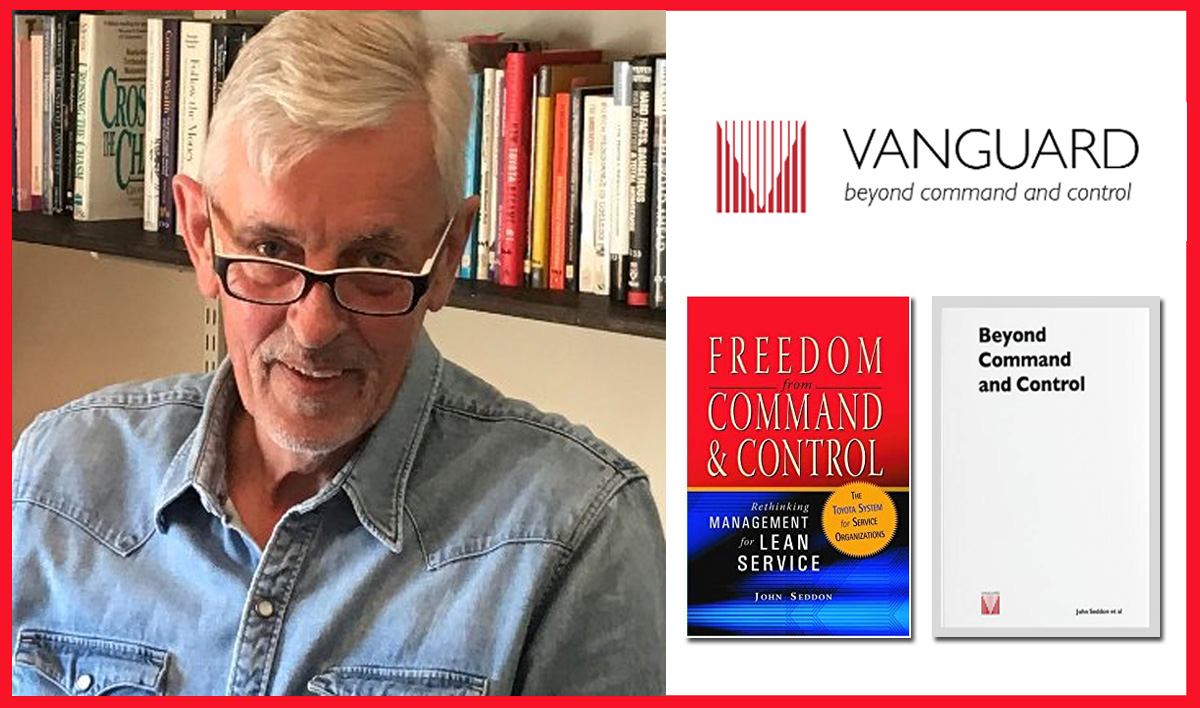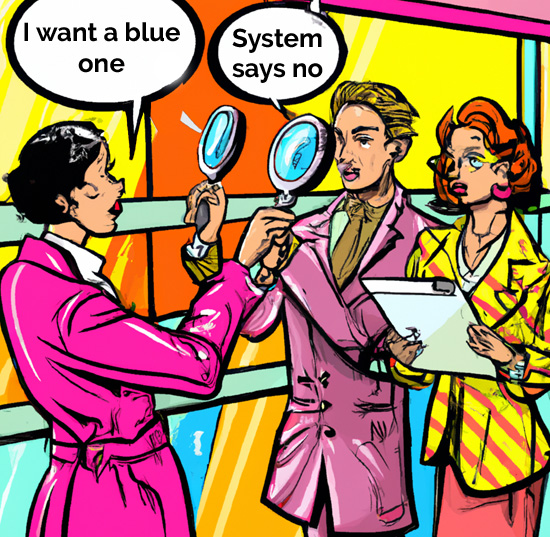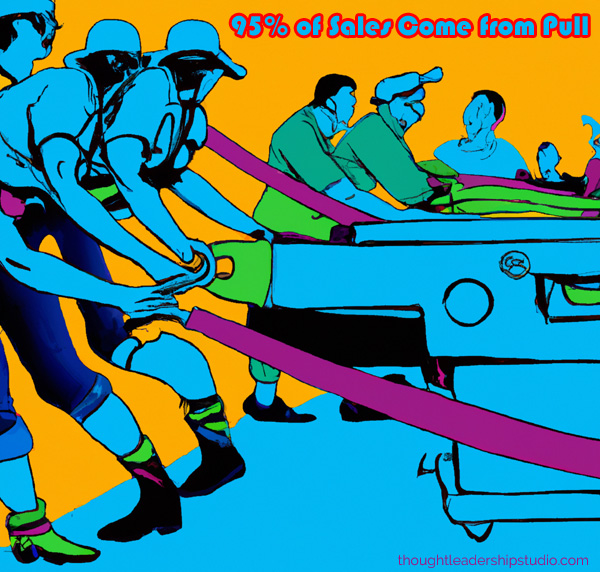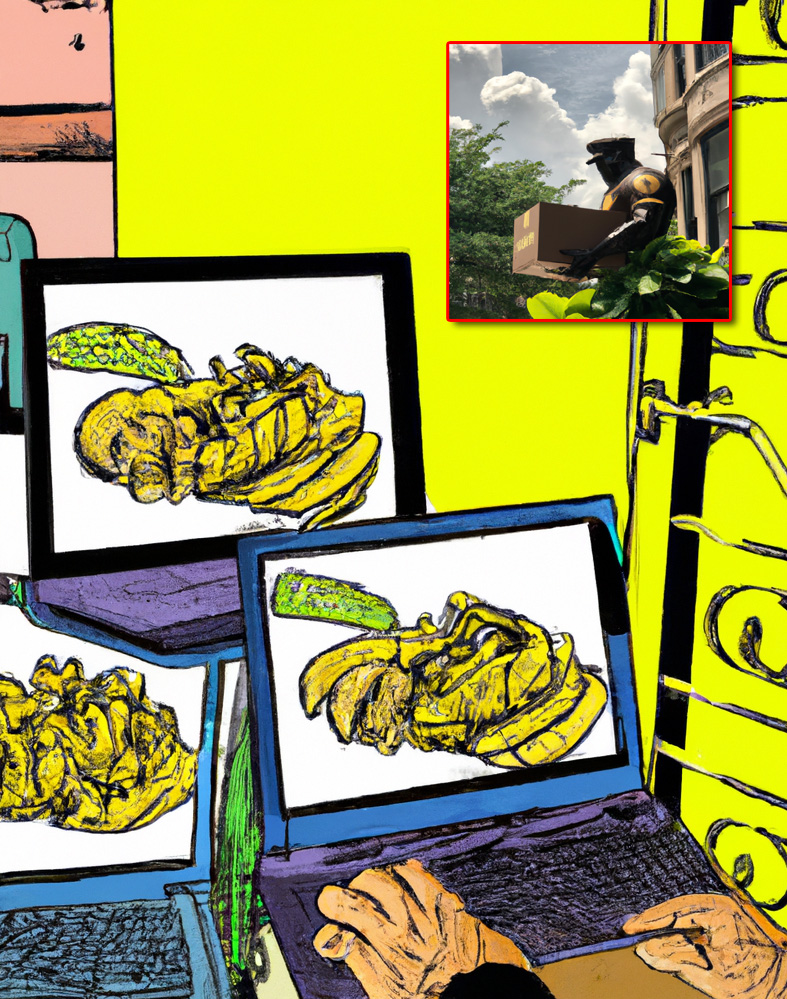Thought Leadership Studio Podcast Episodes:
Interview with John Seddon, Inventor of the Vanguard Method
Episode 36- Beyond Command and Control: Breakthroughs for Service Businesses and Marketing.
Systems Thinking Insights from the man I regard as the "Deming of Service Businesses".

#authors, #consulting, #customerexperience, #innovation, #insight, #inspiration, #interviews, #johnseddon, #marketing, #marketingresearch, #marketlistening, #marketresearch, #meaningfulwork, #organizationalculture, #paradigmchange, #paradigms, #paradigmshifts, #pullfillment, #storytelling, #systemsthinking, #thoughtleadershipexamples
Or Click here to listen or subscribe on appWhat this episode will do for you
- Get an introduction to how the Vanguard Method creates breakthroughs by applying Systems Thinking and Intervention Theory to service businesses... from the founder himself, John Seddon.
- Gain insights into counter-intuitive leverage points for business breakthroughs.
- Understand some of the why and how to study a business as a system.
- See how inbound "pull" marketing is more effective than outbound "push" marketing from John Seddon's perspective..
John Seddon, Creator of the Vanguard Method.
John Seddon is a British occupational psychologist and author who specializes in change in the service industry. He founded the consultancy company Vanguard in 1985 and is the inventor of 'The Vanguard Method'. Vanguard currently operates in eleven countries. Seddon is also a visiting professor at Buckingham University Business School.
The Daily Telegraph described him as a "reluctant management guru", with a background in occupational psychology.
John is on Twitter as @JohnWSeddon.
You can purchase his book Beyond Command and Control (and others by John) on Amazon.
Curated Transcript of Interview with John Seddon
The following partial transcript is lightly edited for clarity - the full interview is on audio. Click here to listen.
Chris McNeil: I'm Chris McNeil, host of Thought Leadership Studio, and I am sitting here over Zoom with one of my heroes in business, somebody who's been a great inspiration and a incredibly innovative thinker in management for service businesses. John Seddon, founder of the Vanguard Group and creator of the Vanguard Method. Good to see you, John.
John Seddon: And good to see you. Chris.
Chris McNeil: Maybe for our listeners who aren't as familiar with your work, you can give us a short rundown of the high points that brought about this revolutionary way of looking at service businesses.
The Vanguard Method- Systems Thinking for Service Businesses
John Seddon: Okay. Well, all we do in Vanguard is help leaders of service organizations change their organization from a conventional command and control design to a systems design. You know, it was Deming who first said to me, "Well, humankind invented management. The current system doesn't work very well. We should change it." And he implored us to think about our organizations as systems. And I had, I basically spent my life working out, well, how do you do that for service organizations? And that's all we do.
Chris McNeil: Well, there's a few pieces of the puzzle I think you bring to the table that can be pivot points for just about anybody in a service business. And one of them that really resonated with me - where light bulbs just went off - was the concept of designing to demand.
John Seddon: Yeah.
Chris McNeil: Which seems a simple concept, , until you realize you're bumping against all these hierarchical mental models of management that most of us have been brought up in and are surrounded by.
John Seddon: Yeah.
Chris McNeil: So you bring something that can bring about radical transformative change, something people say they want generally.
But it doesn't necessarily do to in a way that fits the way that you think it should be done. So you've got to do some belief change.
John Seddon: Exactly. Yeah. I mean, I was being interviewed once by the BBC and the journalist said to me, "John, what are you saying? Are you saying that the people who run service organizations don't understand why their customers call?" You know what, that's exactly true.
You know, the basic paradigm for a conventional command and control service organization is to treat all demand as work to be done. You know, they worry about how much work have I got? How many people have I got? How long have people take to do stuff? And that's everywhere. And it's to miss a fundamental issue.
If you want to actually understand demand from a customer's point of view, there are two major types. The first is the reason we exist. I call that value demand. You know, can you fix a problem? Can you help me? That kind of stuff.
And then there's failure demand, which is, which I defined way back very carefully - it took me ages to settle on the definition. It's basically demand created by a failure to do something, or do something right for a customer.
Now, imagine this, you know, I suppose you run a typical telecoms company, you find in telecoms - and in other companies too - failure demand can run over 80% of the demand on the front end of your system. What's that doing? Well it's just robbing you of capacity, right? So, if we could design a system where the service worked, we'd increase our capacity, we'd also increase sales, we'd also lower costs.
You know, so it is a fundamental shift away from the way we treat demand at the moment.
Breakthroughs from Studying Your Business as a System
 Chris McNeil: Yeah. It certainly attacks the very core of the roots of hierarchical top-down thinking as I understand it. And so, to me, there's a couple levels of persuasion going on. And my understanding from studying your work ... and I've studied it quite a bit for years, because discovering the Vanguard method was a breakthrough for me. I was in the fitness business at the time with a chain of one-on-one training studios, so service business one-on-one.
Chris McNeil: Yeah. It certainly attacks the very core of the roots of hierarchical top-down thinking as I understand it. And so, to me, there's a couple levels of persuasion going on. And my understanding from studying your work ... and I've studied it quite a bit for years, because discovering the Vanguard method was a breakthrough for me. I was in the fitness business at the time with a chain of one-on-one training studios, so service business one-on-one.
And every time I managed to apply anything from Systems Thinking, even just doing causal looping to kind of understand internal issues and things like that, it made a tremendous difference. And it wasn't something I would've thought of without using these tools.
But there didn't seem to be anything in systems thinking for service businesses except for the Vanguard method and how you took the things that Deming did, what Toyota did and applied them to services. And my understanding is you work on beliefs through helping managers encounter the toxic nature of their own beliefs by studying their business as a system.
John Seddon: That's correct.
Chris McNeil: If somebody's listening to this and wondering, "What does that mean to me to study my own business as a system?" ... How would you explain that? And I know you probably say, "Study it as a system." How do you do that? ?
John Seddon: Yeah. Let me come to that. Let me just say, first of all, in my early period when I was trying to work this out, I read all of the systems thinkers I could find.
Chris McNeil: Okay
Real Change Comes from Changing Norms, or Beliefs
John Seddon: And, you know, Ludwig von Bertalanffy, Peter Senge, more recently people like Dave Snowden.
What I was concerned about is, well, what do you do on Monday in a service organization? And nobody helped me with it, I had to work it out. Nobody was doing that. Nobody was thinking about that. You know, so let's come to what do you do on Monday?
You know, if you were a leader in an organization, I wouldn't tell you things that are counterintuitive, like if you manage a lot of activities, it's cost that'll drive your costs up. If I tell you things like that, it'll piss you off, you know, if I tell you things like standardizing work, specializing work, having protocols, those kinds of things, that they will worsen your service.
That'll increase your cost. You know, these are the things you do every day and that will just piss you off. So I don't tell you that. What I do is I invite you to come out and we will organize with you how you are going to study your system.
And you learn all the things that otherwise you would've disagreed with, and you can't deny them because they're right there in front of you. You can now see all the costs that you're creating by the system that you're actually running.
So these are counterintuitive truths that help you, because now if you can see, if you can see that other way of looking at things, then you're going to cross a Rubicon. If you can then work with that way of looking at things, you'll never go back. And that's basically what happens.
Chris McNeil: Yes. Transformation seems to happen.
John Seddon: Yes.
Chris McNeil: So I understand that you need leader engagement for this, because otherwise you've got people that run the controls who may never buy in because they don't experience it themselves.
John Seddon: Exactly. Right? Yeah. We never, we never start work without leaders coming out to study their system. And, of course, you know, they, they kind of go, "Oh, no, John, John, that's okay, we don't need to do that. We are very open-minded." . Oh really? Oh no, we won't come out unless you come out with us and study your system, we're not going to help you.
 You know, if we go out into one of your bits of your organization and we do something and change it with the people there, then you're going to end up having a train crash because they know things you don't know, and they see you do things out of the old mental models and they discredit you for it. So you don't, you don't want to try and crash.
You know, if we go out into one of your bits of your organization and we do something and change it with the people there, then you're going to end up having a train crash because they know things you don't know, and they see you do things out of the old mental models and they discredit you for it. So you don't, you don't want to try and crash.
So we won't start, we never start without the leaders coming up to study the system. And then, you know, we help them take responsibility for the plan.
Chris McNeil: And part of that, from what I've seen, is by getting the leaders to study with their people so they're studying the same thing, they develop a shared understanding that bridges a lot of these conflicts between management and the front lines that people try to remedy with these programs they bring in without necessarily working on that kind of shared understanding.
John Seddon:Yeah. That's a very important point that you make because the quality of the relationship is an outcome. You know, a lot of consultants think the thing to do is to go out and establish trust. Let's work on trusting each other. And I say, oh, fuck off. You know, trust is not a point of intervention. Trust is an outcome. You know, you can dick around with trust exercises, but you still haven't changed your mental models. And you go back into a system that's running according to your mental models. Forget it. It is just a waste of time.
Chris McNeil: Yep. I understand. But it's about experiencing this as opposed to just intellectually understanding it. And it brings up a thought I've had, and something I've wanted to run by you in the past too, is what about when, because you've got to talk about design to demand, you help a business design to demand and put themselves into customer's shoes.
To me that's very zen-like, by the way it's getting out of your mental models. That's what Zen masters try to get people to do: step out of their models and into the moment.
John Seddon: Mm-hmm.
Chris McNeil: ... and allow your people to be present with customers to really hear what they want instead of imposing their own top down models onto "Here's what we provide and here's how we segment it."
John Seddon: Yeah.
Chris McNeil: By the way, you mentioned Russell Ackoff. He's got a lot of really good videos on YouTube. I understanding he's passed now, but he seemed pretty eloquent about describing how studying something as a whole is very different from breaking it into its parts...
John Seddon: Yeah.
Exclusively Pull Marketing Avoids Mismatching
Chris McNeil: ... and trying to optimize each one.
But the point I'm getting to in a roundabout way is, well, if you're designing to demand, but what you're selling is counterintuitive to most managers. How do you look at your relationship with consulting clients? Because obviously you can't just design to their conscious demand of "We want yet another program that fits our mental models", but yet you're challenging your customer's mental models so they can get more in alignment with what's going to help their customers.
John Seddon: Yeah. Well don't worry, we wouldn't do that. You know, if they asked us for teamwork, we wouldn't do it. If they asked us for anything that we don't do, we just say no.
But also, I think, you know this, I don't have a sales force, you know, because that's "push". And I think what's really important about this work is that it comes to us by pull.
You know, so our, our clients have either worked with us before, so they know, they know what it is. They know they've got an organization to change, they know it needs help orchestrating, they know what the outcome is. But they also know they can't just "tell people:, you know, they ain't gonna do it. So a lot of, a lot of our clients have worked with us before.
Other people come to us because they've seen what we've done in another client system. Others come to us because, maybe they've listened to something like this or seen a video or read a book. And they're curious. Because they come, those people who are curious do come with a mental model about how to do change. But that's okay because we won't serve that mental model. We'll help them understand why we do it the way we do it and how that makes it successful.
And you know, we will only do it in the way in which we know we're going to get success, basically. But, you know, but the important thing is that you've got to want to change your thinking. That requires pull, not push.
Chris McNeil: So it's very important for your business in particular to rely on the pull from the marketplace and respond to that.
John Seddon: That's right.
Chris McNeil: My understanding is that's really a lot more common to more businesses than people probably acknowledge because they have these sales systems that they think are actually bringing it in from push until they study it and find out only a very small percentage are actually coming from push, while most are coming from pull.
95% of Sales Come from Pull
John Seddon: Yeah. That, that's a great observation. You know, I can't count the number of call centers I've worked in, you know, where they're incentivized to sell things to customers.
An exercise that you do with leaders in a situation like that is have them go and study the calls with only one focus: I often send people out with only one question because it's the important question. And the question in this case would be the customers that bought: did they pull or were they pushed? And you've got to listen to the conversation. And what you learn is exactly what you are saying. The vast majority of them called up to buy something. It was pull.
 Well then, you know, now the leader's mind goes to, why are we spending all this money on sales training programs? Right. Why do we have all these sales incentives? Oh, look, here's another thing to study because you've got these sales incentives, it drives maladaptive behavior amongst the people in the call center. Because if they've got a call that's clearly not about a sale, they'll do their best to get rid of it and pick up another one. Because there's point surprises, you know, so It does, you're absolutely right. You're absolutely right.
Well then, you know, now the leader's mind goes to, why are we spending all this money on sales training programs? Right. Why do we have all these sales incentives? Oh, look, here's another thing to study because you've got these sales incentives, it drives maladaptive behavior amongst the people in the call center. Because if they've got a call that's clearly not about a sale, they'll do their best to get rid of it and pick up another one. Because there's point surprises, you know, so It does, you're absolutely right. You're absolutely right.
I also believe I, you know, this is I think something that's going to transform the web one day - when it turns into pull, not push. At the moment, the whole of the web is about push.
Chris McNeil: Well that's a lot of what my personal mission is about, you know,. I see - and, and the concept has been around for a while. As matter of fact, I just did a podcast that was about people who've influenced me and you're one of them.
Another one was Seth Godin, who wrote in the late 1990s, early 2000's about Permission Marketing versus Interruption Marketing. And about unleashing an ideavirus and about how if it's a good idea and it enhances people's lives and enriches them .... - it may be a different way of looking at a service or different way of extracting benefits from something ... then it's going to spread from person to person more so than it is going to come from interrupting somebody's attention, because (the internet) makes it so easy to spread ideas that are worthwhile.
It seems like you have a lot of ideas that are worthwhile, but you're also dealing with human nature.
And it's like every service business should do this , you know, in some way, shape, or form it seems , but there's a paradigm change and pioneers get the arrows sometimes. And there's, there's pushback when you're, when you're challenging and you talk about, "Oh, maybe we don't need to do sales".
I'm sure we can find other functions that these salespeople can serve that would probably be more effective when you reframe things to responding to pull. But it might make people feel threatened because they've have a model they developed that they based their livelihood on.
John Seddon: Mm-hmm. .
Chris McNeil: And so maybe I understand part of it is so is helping create an environment where people see there's new roles that they can serve that are going to be more functional, so they're not going to be made redundant.
John Seddon: Yeah. But let me, let me agree with your first part. You know, again, it was Deming who used to say,"Doesn't anybody care about profit?"
You know, because there are plenty of leaders in the top echelons of organizations who don't actually give a shit about a performance of the firm. What they give a shit about is their deal. You know? So I've been in situations where I've had top people study their system, do their plans, set it up, build a prototype, and then some of them would see that what this, what this prototype is going to lead to is going to severely damage their current initiative, which is attached to major bonus. So they fight it .
Chris McNeil: Sure
John Seddon: You know, they, they can see, like, everyone can see this is going to make us a lot more money. This is going to be much better for our customers over, "No, but it's going to stop me only my hundred thousand bonus. So we're not going to have any of that".
Chris McNeil: Well, how do you address that if you're, if you were the major stockholder of the company sitting on the board and you could have some direction over that?
John Seddon: Yeah. Well, I mean, the only person who can address it is the Chief Executive. And I've been in situations where the Chief Executive has stepped on people for doing that, pushed them out of the way, for making the right thing happen. But I've also worked in places where, you know, there, one of the things that irritates me about firms these days is it wasn't like this when I grew up learning my craft in the eighties and nineties, you know, one of the, one of the kind of dynamics you get is this awful business about Chief Executives not actually being able to make decisions.
You know, everything has to be done by committees, and all the rest of it. So in that kind of media, you do often find that the things they decide are not the optimal things for their system.
Chris McNeil: Interesting. The decision by committee can be dysfunctional.
John Seddon: Yeah. I mean, you know, when I, when I was learning my craft, I would meet a chief executive and we'd agree to start work and we'd go to work. These days it can take more than a year for Vanguard to get involved with a major company because of all the committees and purchasing and procurement and risk management and all kinds of crap gets in the way.
Chris McNeil: Is that part of what Russell Ackoff talk about breaking things into parts and trying to work on each part separately from the whole?
John Seddon: Well, maybe, but you know, on that, on that particular issue, he used to say, you know, well, here it is. This is what I'm going to do for you. If you have to do all that paraphernalia, I'm not coming. You do it all yourself. I'll turn up when you're ready, but I'm not going to start trying to satisfy all these players. You do.
Chris McNeil: He gave an interesting analogy in one talk that struck me as profound and said, "What if you wanted to make the best car in the world? You found the best tires. The best wheels, the best suspension, the best steering.... and they were all from different manufacturers. You have Volvo engine and the BMW suspension, Porsche body work, and you had all these parts together. Could you get in and actually drive it?
I've actually brought that up with people and they said, well, "You have the best car in the world." I'm like, well, the parts wouldn't fit, wouldn't they?
John Seddon: they wouldn't work. Yeah.
Chris McNeil: So, as part of the learning process, seeing how the system works as a whole, through the relationship between the parts and these models of specialization, drilling too far down into a specialty and missing what's around it.
John Seddon: Yeah. And, and you know, to use System Thinking language, the ontology is entirely predictable. You know, so what that basically means is the relationship between the parts and the whole is entirely predictable. You know, so you take a conventional commandment control service design where you might have a call center front end, or these days you'd have a digital front end in front of the call center.
And then you might have back offices and you manage all of that by activity. Because you assume that activity was cost. You have to make your budgets, you standardize, specialized the work because you're after economy. And, because you think that's more economical to do that, it is also cheaper cost to train. And what you learn is all of those things get in the way of doing a good job for your customers every time.
You know, so that opens your mind to the issues and the opportunity. But then you are, as part of the studying, what you also do is you start understanding, well, how predictable are the value demands things the customers want from us? And when we study how our system deals with them from the customer's point of view, how many transactions was that? And how long was it end to end? And how much money was consumed in doing that?
And then when we look at all the things that go on in doing that, how much of that was actually a value to the customer meaning, what matters to them? And how much of it is created by us because we've created this system.
And you know, so now that's rock and roll. So now they can see an opportunity, they start thinking about, well we could design a system that does that, but it'd be designed in completely different principles.
You know, of course we help them with the principles. You know, on one basic principle is the, well, if we can understand the predictability of the value demands, then we can build the expertise at the front of that system to give customers what they want - there's a radical idea.
And now they know that'll be cheaper if you tell them that right before you start. Actually what we're going to do is we're going to kind of in their language, "upskill" the front end. I'd never say that - they'd say "upskill" the front end. Right? ... Have 'em take as long as they want to deal with customers. So the customers dealt with, they go, "Oh no, no, you can't do" that because it blows their model.
Chris McNeil: Yeah. It makes sense. So these ideas that run counter, but another interesting thing I'm getting is that these dynamics are fractal, I guess you'd say, is that they're common predictable archetypes of service businesses. I had someone tell me recently, "Well, have you marketed for this specific kind of business?" I'm like, "No. but the issues of transforming - in this case to more inbound type marketing - are pretty universal.
John Seddon: Yeah. Yeah. Yeah.
Chris McNeil: And I really like what you said about the internet needing to go more inbound. And of course there's laws coming out now that limit things like third party cookies and the ability to track people.
And to me it, it also aligns with this philosophy of shedding your mental bottles to be present with the customer instead of constraining what you do for them into your specialization, your mental model, your narrow window.
John Seddon: Yeah.
Chris McNeil: And, and getting out of your mind to hear them, to see them, and understand what they want better.
John Seddon: (affirmative),
 Chris McNeil: But things like big data reduce the customer to a very small data point.
Chris McNeil: But things like big data reduce the customer to a very small data point.
John Seddon: Yeah, yeah, yeah. And it's push and, and it costs a lot of money and it's not very reliable and pushes don't work very well, but people love big data. You mean you're absolutely right.
You know, the, the internet could easily be turned around, uh, because rather than have, have all this tracking going on, which is all start all the start of the push process. Yep. Which irritates us, doesn't it? You know?
Chris McNeil: Absolutely.
John Seddon: I went to buy some walking boots from, from a shop in town. The, the people weren't very friendly and they didn't pay any attention to me. I said, I found out what I wanted. I went on the web and bought it. So now I've got some boots, walking boots I bought on the web. And so now they're, everyone's trying to sell me a bit of a white tent and I'm going fuck off. I don't, I don't , I never sleep in a tent, what's the matter with you people?
But if we turn that around, and people said, I want to know more about, you know, you're giving permission then for people to send you information about it and also the ability to turn it off. But, you know, it starts with what matters to me, not what matters to you, the pusher.
Chris McNeil: Right.
John Seddon: "What do I want to pull?" ... you know, "What help do I want here?" And and a lot of us use the web like that. Exactly. You know, we, we go search for things that we want.
 I had just taken delivery of plantains because I was in, I was in a Caribbean country recently and I ate some plantains. I want to make some of those things. Okay, so I've got plantains and now I've got to think about ways to cook them. What do you do? You Google it and then you find ways to cook them. And I've got what I want.
I had just taken delivery of plantains because I was in, I was in a Caribbean country recently and I ate some plantains. I want to make some of those things. Okay, so I've got plantains and now I've got to think about ways to cook them. What do you do? You Google it and then you find ways to cook them. And I've got what I want.
I'm probably now going to have people try and sell me loads of stuff. But anyway, you know, that's, that's how most of us use the web. But looking for something and it could easily be turned around. So I'm in control of the things that I'm pulling for. Not someone's got my data and pushing.
Chris McNeil: I think some of us recognize that, but a lot of businesses still don't.
John Seddon: Oh, sure.
Inbound (Pull) Marketing Only a Third the Cost per Lead of Outbound (Push) Marketing
Chris McNeil: HubSpot is a company this promotes inbound marketing and purely content marketing. Of course, what you run into is there's a time distortion because it takes time to build content that's worthwhile enough to be worth finding.
And there's studies, though that show a lead from inbound marketing costs only 30-35% what an outbound lead costs - what it costs to interrupt somebody to get their attention. So it's about a third of the cost. And in spite of that, there's still a predominant belief system that we should be interrupting people. I think people get seduced by big data and all the graphs and just how precisely you can tick somebody off by targeting them, by everything you know about them now.
John Seddon: Yeah
Studying Real-Life Demand Instead of Inventing Buyer Personas
Chris McNeil: It just seems extremely invasive. And one thing we run into in marketing is that some people try to create an antidote in the form of a buyer persona. I think it's a maybe a step in the right direction in that at least you're trying to have customer empathy...
John Seddon: Uhhuh (affirmative).
Chris McNeil: ... What, what do you think about those? Do you have an opinion on buyer personas?
John Seddon: Well, yeah, just only a small one. You know, why dream up somebody when you've got customers hitting in your system every day? Yeah. Get out, understand what matters to all these people that are here in your system.
You know, start to understand what's really going on in demand. And you wouldn't need a persona. Um, it's a joke really, isn't it? Well, I think it's a joke.
Chris McNeil: I'm very skeptical of it for similar reasons.
John Seddon: It's kind of typical agile junk. But, you know, it keeps people happy and they play their games, but it, you know, it's, it's absolutely useless. No value at all.
Chris McNeil: CWell, there's just seems to be this thing in marketing and maybe business management where people want to spend their time on going deeper into models that detach them more from the customer, but give them something to do with their time and ...
John Seddon: Yeah. Yeah. Yeah.
I mean, you know, the thing we're discussing, I think, I think I, I might have talked with you about this before, but we worked for one of the largest insurance companies in Scandinavia in their life products division. So this is life insurance sales, you know, and like all life insurance sales companies, they had salespeople out there with targets to sell particular products that would make the business managers very happy.
You know, they had to study that to find out how suboptimum it was from a customer's point of view. They had to redesign it to make a pull system. So, you know, when any customer calls, we're not in the business of turning up to sell them a product in the business ... turn up and find out what matters to them. The consequence of that is it brings the underwriting closer to the customer because you want it covered the way you want it.
And that's how it worked. And their sales went up by 35%. They didn't have to do anything, they just had to service the demand that was occurring according to what matters to customers. 35% uplift in sales.
Now. So you think about that as a lesson. Everybody out there who's got a kind of a push sales system will have a lot of sub-optimization going on because of the push and all the dynamics that that creates not only pissing off the customers but also wasting time now having customers buy things that they then reject. All, all that kind of stuff goes on.
And, and if you turn it around and actually work on what matters to people, sales are gonna go up. They see, they wouldn't believe that. They think those bloody people won't sell unless we give them an incentive.
Chris McNeil: And, but that kind of result speaks for itself. I think that kind of dramatic increase. So then we have people who want to see that kind of increase. And I would love to see a 35% increase in sales. How do I do it in a way that fits my mental models?
John Seddon: Well, you can't
Chris McNeil: Yeah. And that's a challenge. And I think your book is very eloquent and is very patient with giving people small enough steps. I'm talking about Beyond Command and Control ....
.............
The transcript is lightly edited for clarity and is a partial transcript- the full interview is on audio. Click here to listen.
***************************************
Free Stuff and Offers Mentioned in Podcast
***************************************
***************************************